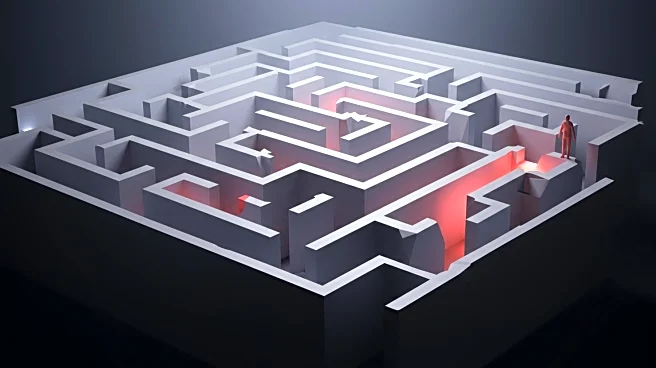What's Happening?
Researchers at the University of California, Berkeley have identified a new cognitive bias termed 'doubling-back aversion.' This bias makes individuals reluctant to choose more efficient solutions if it requires retracing their steps. The study, published in Psychological Science, involved over 2,500 adults in various experiments, including virtual reality path navigation and word recitation tasks. Participants showed a tendency to avoid switching to easier tasks if it meant discarding previous efforts, even when the switch was objectively beneficial. This aversion is related to the sunk cost fallacy but represents a distinct cognitive pitfall.
Why It's Important?
Understanding 'doubling-back aversion' can have significant implications for decision-making processes in various fields, including business, education, and personal development. By recognizing this bias, individuals and organizations can develop strategies to overcome inefficient decision-making patterns. This research highlights the importance of cognitive biases in shaping human behavior and decision-making, potentially leading to improved methods for training and development in professional settings.
What's Next?
Further research is needed to confirm these findings and explore the prevalence of 'doubling-back aversion' in different scenarios. Researchers may investigate how this bias affects decision-making in high-stakes environments, such as corporate strategy or emergency response. Understanding the conditions under which this bias is most likely to occur could lead to targeted interventions to mitigate its impact.
Beyond the Headlines
The identification of 'doubling-back aversion' adds to the growing body of knowledge on cognitive biases, offering insights into human psychology and behavior. This research may influence how educational programs are designed, encouraging flexibility and adaptability in learning processes. Additionally, it could inform public policy by highlighting the need for systems that support efficient decision-making.









